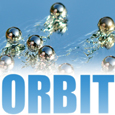Getting a buzz out of blogging: Difference between revisions
No edit summary |
SimonKnight (talk | contribs) No edit summary |
||
| Line 6: | Line 6: | ||
|resourcenumber=TE0025 | |resourcenumber=TE0025 | ||
|age= Primary KS1, KS2, Secondary, KS3, KS4 and 6th Form. | |age= Primary KS1, KS2, Secondary, KS3, KS4 and 6th Form. | ||
|content= Learning outcomes<br />Course schedule<br />Introduction<br />Introducing ourselves through a blog <br />Introducing blogs <br /> E-safety when using blogs<br />Exploring classroom blogs <br />Finding relevant examples and generating ideas <br />Planning to use a blog<br /> Setting up and using the blog for teaching and learning<br /> Reflect, evaluate and share with others<br />Shared learning<br />Evaluation and certification<br />References | |content= Learning outcomes<br />Course schedule<br />Introduction<br />Introducing ourselves through a blog <br />Introducing blogs <br /> E-safety when using blogs<br />Exploring classroom blogs <br />Finding relevant examples and generating ideas <br />Planning to use a blog<br /> Setting up and using the blog for teaching and learning<br /> Reflect, evaluate and share with others<br />Shared learning<br />Evaluation and certification<br />References | ||
|strategy= | |||
|strategy= | |||
|Learning Objectives='''Professional and reflective practitioner skills'''<br />At the completion of this course, students should be able to:<br />* identify opportunities for the effective use of blog supported learning activities linked to your curriculum plans,<br />* reflect on, and discuss, the impact of the use of a blog on learning.<br />'''Practical skills'''<br />At the completion of this course, students should be able to:<br />* set up a blog including options for comments and syndicating feeds, <br />* publish a blog entry and comment on other blogs, <br />* incorporate text and other media on a blog page, <br />* manage users (authors, reviewers etc) of a blog.<br />'''Knowledge and understanding'''<br />At the completion of this course, students should be able to demonstrate an understanding of:<br />* the issues involved in selecting the appropriate blog tool for your context and intended learning purpose, <br />* key copyright and e-safety issues when creating and sharing content on a blog.<br />'''Cognitive skills'''<br />At the completion of this course, students should be able to:<br />* critically review the use of blogs in educational contexts and share these reviews with others, <br />* discuss different ways in which blogs might be used in learning contexts in schools. | |Learning Objectives='''Professional and reflective practitioner skills'''<br />At the completion of this course, students should be able to:<br />* identify opportunities for the effective use of blog supported learning activities linked to your curriculum plans,<br />* reflect on, and discuss, the impact of the use of a blog on learning.<br />'''Practical skills'''<br />At the completion of this course, students should be able to:<br />* set up a blog including options for comments and syndicating feeds, <br />* publish a blog entry and comment on other blogs, <br />* incorporate text and other media on a blog page, <br />* manage users (authors, reviewers etc) of a blog.<br />'''Knowledge and understanding'''<br />At the completion of this course, students should be able to demonstrate an understanding of:<br />* the issues involved in selecting the appropriate blog tool for your context and intended learning purpose, <br />* key copyright and e-safety issues when creating and sharing content on a blog.<br />'''Cognitive skills'''<br />At the completion of this course, students should be able to:<br />* critically review the use of blogs in educational contexts and share these reviews with others, <br />* discuss different ways in which blogs might be used in learning contexts in schools. | ||
|additional resources= | |additional resources= | ||
Revision as of 09:30, 23 July 2012
- Blog skills for subject specialists
- Copyright: keep it legal
- ESafety KS1
- Getting a buzz out of blogging
- ICT support in education (practitioner)
- Introduction to games
- Learning platforms all aboard
- Learning together developing wikis
- Learning together introducing wikis
- Making games and motivating learners KS2
- Multimedia skills and applications
- Researching and evaluating a digital game for the classroom
- Sharing ideas - developing wikis (primary)
- Sharing ideas introducing wikis
- The potential of technology
- Using the game Spore to motivate learners KS3
- Website development skills and applications
- Working with multimedia
- Wow them with wikipedia
- Writing using multimodal approaches KS1
- Writing using multimodal approaches KS3
About. Learning outcomes
Course schedule
Introduction
Introducing ourselves through a blog
Introducing blogs
E-safety when using blogs
Exploring classroom blogs
Finding relevant examples and generating ideas
Planning to use a blog
Setting up and using the blog for teaching and learning
Reflect, evaluate and share with others
Shared learning
Evaluation and certification
References
Pedagogical content. Starting with the basic principles of blogs(tool) and blogging, this primary course looks at their use within education and how they can be used to improve teaching and learning. The focus is particularly on blogs as an ICT(i) tool for collaboration(ta) which encourages the effective use of reasoning(ta) and language(ta). The unit also discusses practical elements such as e-skills(topic) and copyright(topic) issues you might encounter in blogging. (edit)
| Resource details | |
| Title | Getting a buzz out of blogging |
| Topic | [[Topics/Blogs|Blogs]], [[Topics/E-skills|E-skills]], [[Topics/Copyright|Copyright]] |
| Teaching approach | [[Teaching Approaches/Language|Language]], [[Teaching Approaches/Collaboration|Collaboration]], [[Teaching Approaches/Reasoning|Reasoning]] |
| Learning Objectives | Professional and reflective practitioner skills |
| Format / structure | Various online activities. |
| Subject | [[Resources/Secondary|Secondary]], [[Resources/Teacher Education|Teacher Education]], [[Resources/Primary|Primary]] |
| Age of students / grade | [[Resources/KS5|KS5]], [[Resources/Secondary|Secondary]], [[Resources/Primary|Primary]], [[Resources/Higher|Higher]], [[Resources/KS1|KS1]], [[Resources/KS4|KS4]], [[Resources/KS3|KS3]], [[Resources/KS2|KS2]]
|
| Related ORBIT Wiki Resources | |
| Other (e.g. time frame) | Duration of the course: 20 hours over eight weeks. |
| Files and resources to view and download | http://www.vital.ac.uk/community/mod/oucontent/view.php?id=1545. Users must register with the VITAL website (free registration) before they can access the resource.
|

